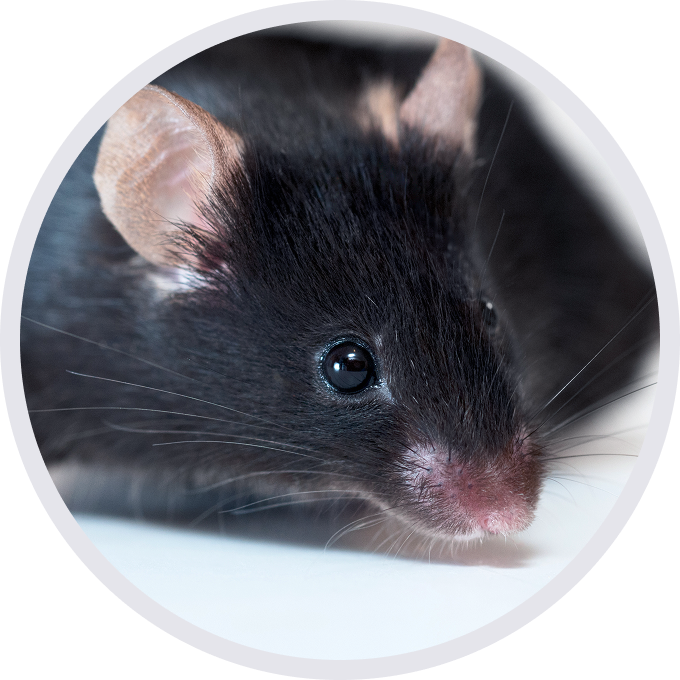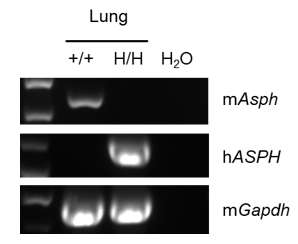


C57BL/6-Asphtm2(ASPH)Bcgen/Bcgen • 112536
| Product name | B-hASPH mice |
|---|---|
| Catalog number | 112536 |
| Strain name | C57BL/6-Asphtm2(ASPH)Bcgen/Bcgen |
| Strain background | C57BL/6 |
| NCBI gene ID | 444 (Human) |
| Aliases | AAH, BAH, CASQ2BP1, FDLAB, HAAH, JCTN, junctin |
Gene targeting strategy for B-hASPH mice. The exons 4-24 of mouse Asph gene that encode extracellular domain and 3’ UTR region are replaced by human counterparts in B-hASPH mice. The genomic region of mouse Asph gene that encodes cytoplasmic portion is retained. The promoter and 5’UTR region of the mouse gene are retained. The chimeric ASPH expression is driven by endogenous mouse Asph promoter, while mouse Asph gene transcription and translation will be disrupted.

Western blot analysis of ASPH protein expression in homozygous B-hASPH mice. Various tissue lysates were collected from wild-type C57BL/6JNifdc mice (+/+) and homozygous B-hASPH mice (H/H), and then analyzed by western blot with cross reatived anti-ASPH antibody (Santa, sc-271391). 40 μg total proteins were loaded for western blotting analysis. ASPH was detected in liver, lung and colon of both wild-type mice and homozygous B-hASPH mice, but weakly detected in brain.

Strain specific analysis of ASPH mRNA expression in wild-type C57BL/6JNifdc mice and B-hASPH mice by RT-PCR. Lung RNA were isolated from wild-type C57BL/6JNifdc mice (+/+) and homozygous B-hASPH mice (H/H), then cDNA libraries were synthesized by reverse transcription, followed by PCR with mouse or human ASPH primers. Mouse Asph mRNA was only detectable in wild-type mice Human ASPH mRNA was exclusively detectable in homozygous B-hASPH mice but not in wild-type mice.